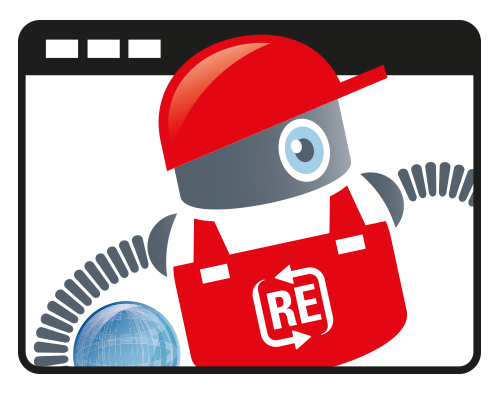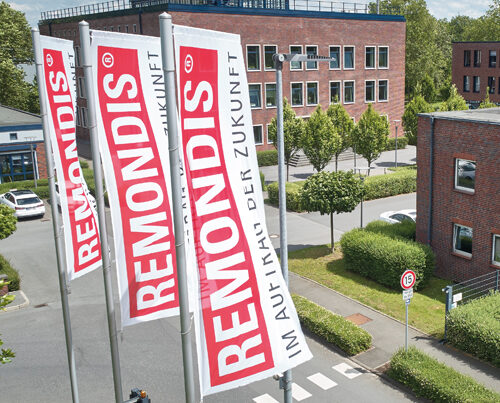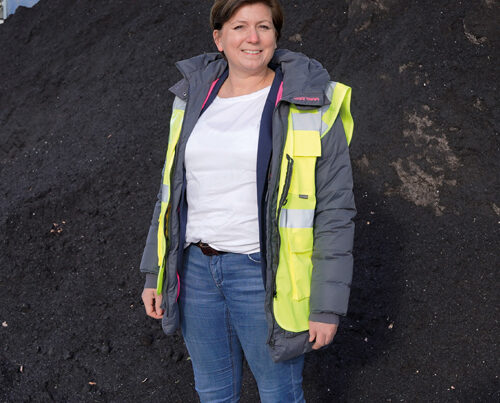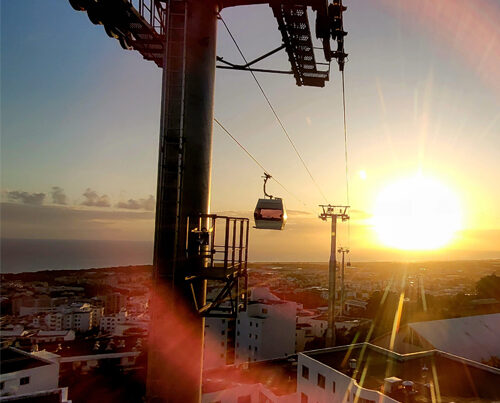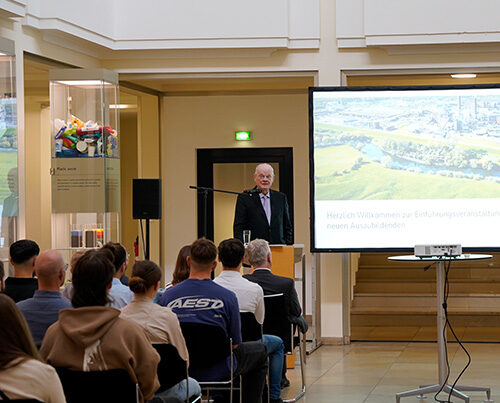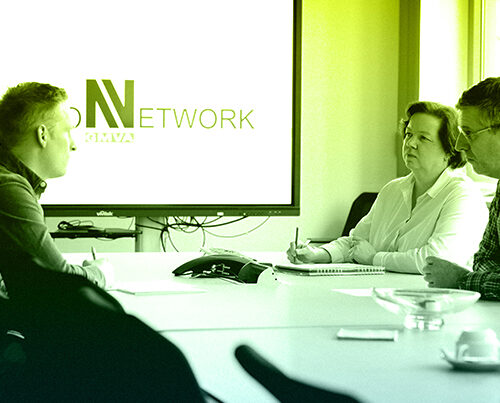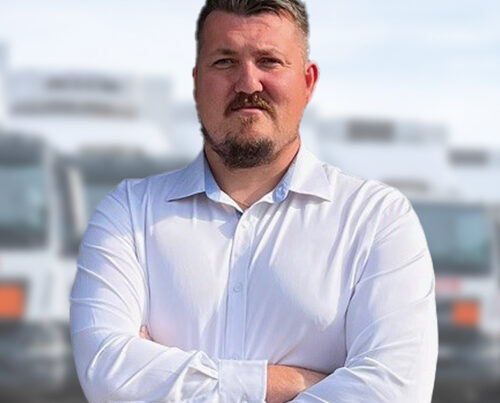Children have a strong sense of justice and quickly pick up on things around them that are not fair. Which makes children the most passionate champions for all things good. One of the conclusions of the Federal Environment Agency’s study “Umweltbildung und Bildung für nachhaltige Entwicklung – zielgruppenorientiert und wirkungsorientiert! [Environmental education and education for a sustainable development – target group oriented and impact oriented!] was, therefore, very apt indeed. Namely that teaching children about sustainability is key to ensuring that society as a whole heads towards becoming more sustainable.
Children’s enthusiasm for the subject, however, will be nipped in the bud if there is a lack of know-how about how to become sustainable and if there are not enough people around to give advice. It is certainly true that more and more teachers are focusing on subjects such as environmental protection and climate action in their classes. This form of environmental education, however, often remains purely theoretical. Pupils are more likely to forget something they see written on the whiteboard than something they can learn through play – that they can experience and try out for themselves.
One key aim: to teach about the circular economy
And what is true for children is true for adults as well. We are all more likely to support a cause if we feel connected to the subject; if we have understood why we should champion change and how such change should happen.
Many people genuinely wish to do something for the environment, for example by separating their waste properly. Adults expect to be able to get hold of pertinent information about this topic, especially from their local authorities. In many cases, they end up disappointed. Even though large sums of money have been set aside specifically for councils to carry out PR work and provide their residents with advice about what to do with their waste. Germany’s so-called dual systems – who are responsible for collecting, sorting and recycling used sales packaging – pay money to local authorities as supplementary charges. Some of these funds should be used by the councils to raise awareness among their local residents about how important it is for them to separate their waste.
These supplementary charges amount to around 135 million euros. But what really happens with all this money? Here and there a dull website or a telephone helpline that can only be reached a few hours a day.
And yet it is so important to reach out to people in the right way. That means using methods and materials that have been adapted to different age groups and to different target groups, that use different channels and that are eye-catching. Environmental awareness projects should provide both children and adults with the information they need and enable them to understand and see both the problems and the solutions.
And this is precisely the approach that REMONDIS takes when it comes to environmental education. This recycling firm has developed different information channels for different target groups that shed light on subjects such as how the circular economy, recycling and recycled raw materials help to curb climate change.
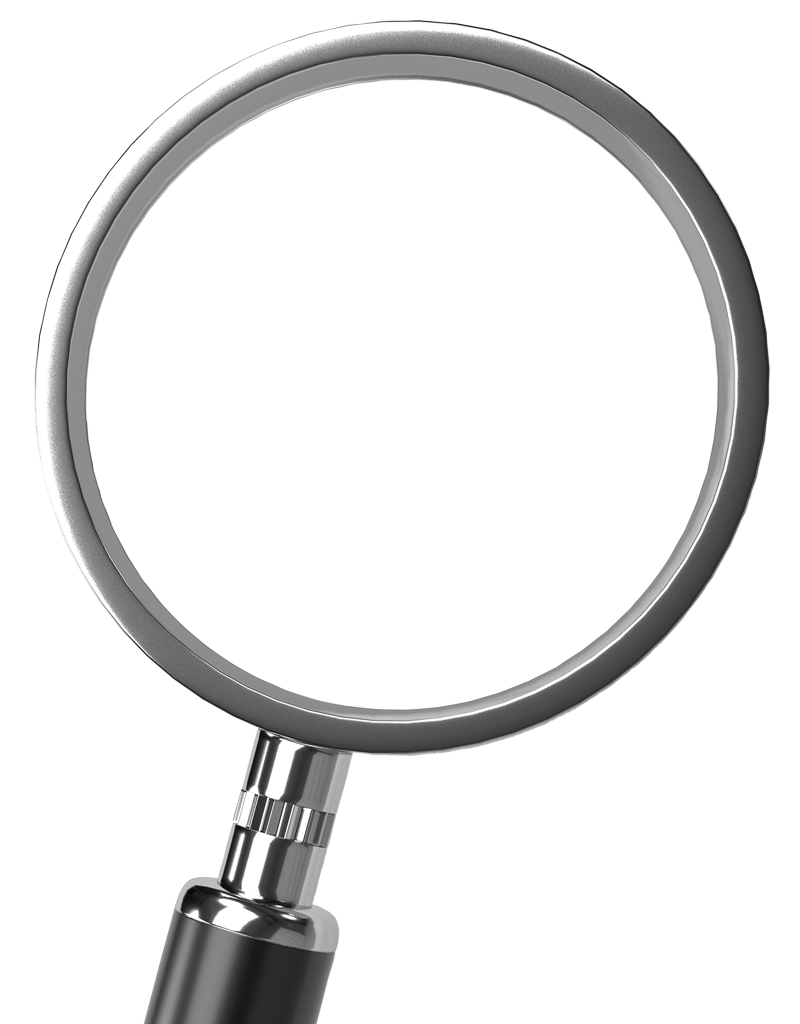
So what is ‘education for sustainable development’?
All of the various threads of the ‘Education for Sustainable Development’ National Action Plan come together in the Federal Ministry of Education and Research (BMBF). The ministry’s website has a number of videos and other materials that are well worth looking at: www.bne-portal.de
A wheelie bin ABC & a look at those tricky cases
The company has created a website, www.remondis-buergerservice.de, to give the general public everyday advice about how best to separate their waste and what to do with these materials to ensure they are recycled. And there’s plenty of humour as learning should be fun. Which bin should old pizza take-out boxes, nappies or bubble wrap be put into? Full of relatable and entertaining animations, the website answers questions, throws light on a number of recycling processes and provides information about bin collection dates. What’s more, it also busts a number of waste myths such as “Everything ends up being incinerated anyway”. Links are also available so that people wishing to learn more about the subject can download a variety of brochures and flyers.
Active on Instagram
The company’s Instagram page, @remondis_official, also shines a light on recycling, climate action and sustainability. Instagram users can find a whole number of stories – divided up into four collections (recycling, Safety first!, climate action and waste know-how) – that look to be enlightening, informative and motivational. These are aimed at a younger target group that is particularly interested in sustainability and environmental protection as this is where these people can be found, right there on Instagram.
An educational project for children
And then there’s the youngest target group, the next generation to be motivated so to speak. With just three words “Let’s get started”, the RECYCLING PROFESSIONAL invites the Year 5 pupils from the Espenstraße School in Mönchengladbach to join him up on the stage. Four wheelie bins are there in front of him surrounded by cardboard boxes, tins, newspapers and other kinds of household waste. The children enthusiastically join in, picking up the bits and pieces, thinking for a moment and then throwing them into the yellow, blue, brown or black bin. As part of this interactive learning theatre project called ‘Let the curtain rise for the yellow bin & co’, two RECYCLING PROFESSIONALS visit kindergartens, primary schools and the lower classes of secondary schools to teach the pupils all about separating waste.
The mission to save raw materials
“As soon as the kids have understood what it’s all about, they really enjoy themselves. They go home afterwards and make sure that they separate their waste – and pass on this message to their parents and other members of their family,” explained Julia-Sophia Voss, who coordinates the RECYCLING PROFESSIONALS educational project for the REMONDIS Group. And that’s what it’s all about – getting the big picture across. “We want the kids to know what happens to their things after they’ve put them in the bins,” Voss continued. This educational project began back in 2013.
“We want the kids to know what happens to their things after they’ve put them in the bins.”
Julia-Sophia Voss, Marketing/Corporate Communications Adviser at REMONDIS
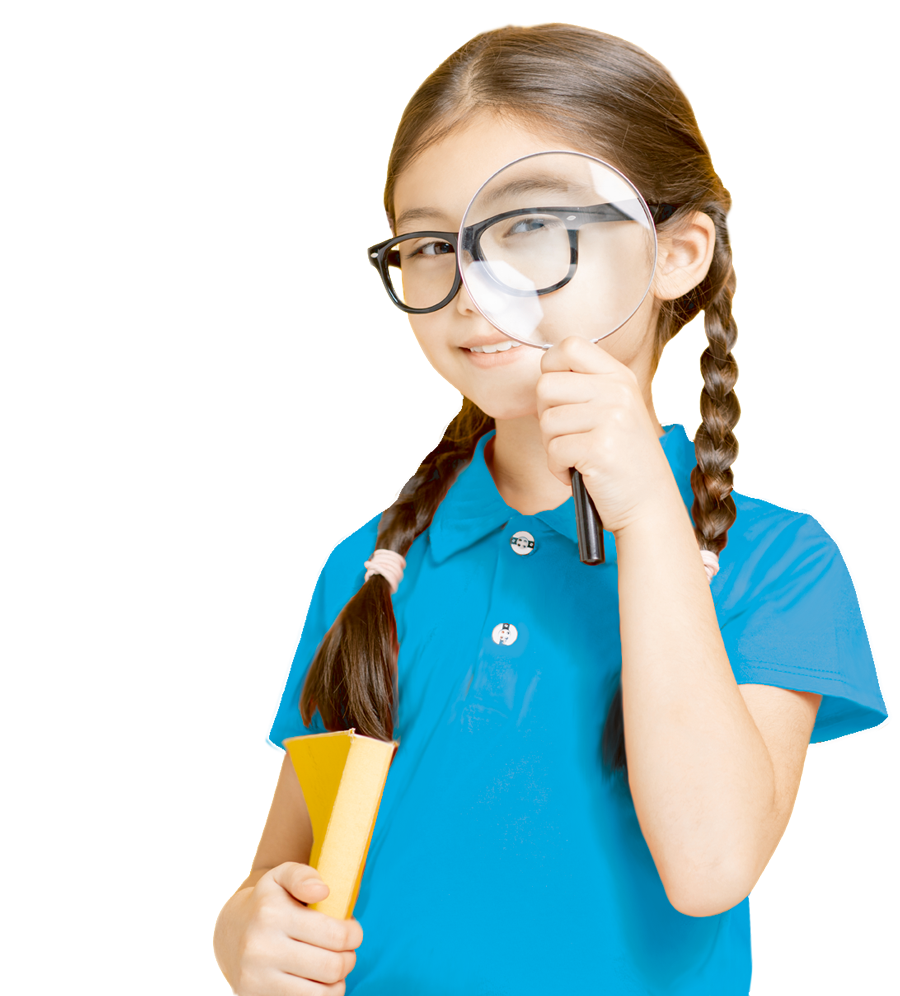
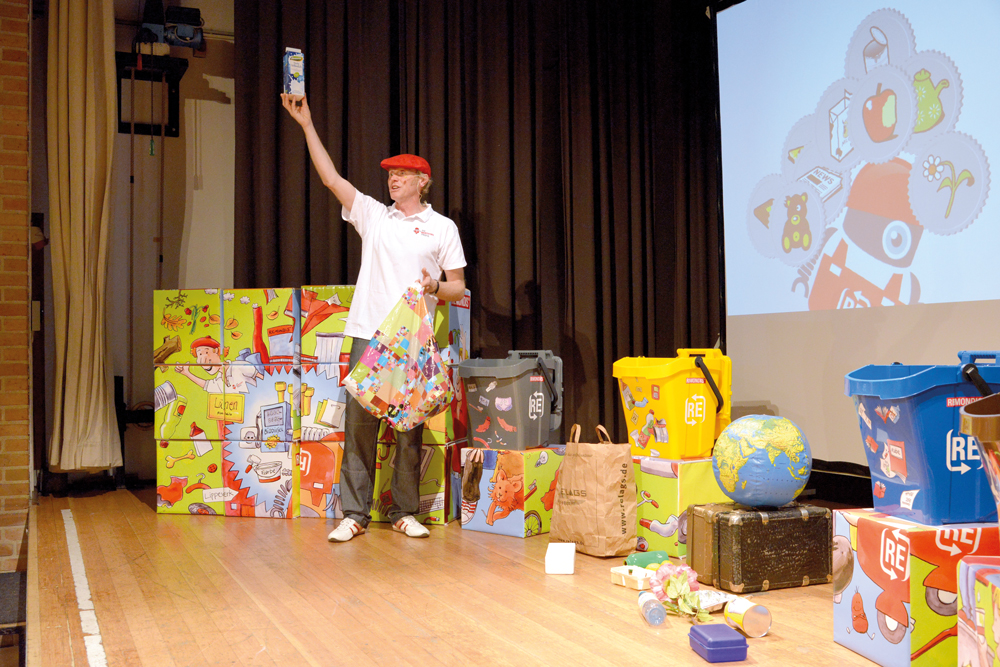
The awareness is already there
“It’s really easy to get pupils motivated about the whole subject of recyclables. Many of them already know that litter is bad for the environment and that littering is wrong. Which is why they watch everything we do in our learning theatre very closely indeed and are keen to know how they should handle recyclables in the future.” Friedhelm Susok from the RECYCLING PROFESSIONALS
A holistic approach to environmental education
The concept for the RECYCLING PROFESSIONALS was developed by a group of environmental education officers, teachers, graphic designers and a creative agency. Their goal: to create a new holistic approach to environmental education that would make young people more aware about the circular economy. At the end of the day, you are never too young to learn. And so this project aims to reach children and young teenagers as early as possible to encourage them to handle natural resources responsibly. The message: waste is actually not waste at all – but recyclable materials made from valuable raw materials. By separating their waste at home, every single person can help save recyclable materials so that they can be recovered and returned to market for reuse.
Suitable teaching materials
Worksheets were also drawn up as well as complete kits containing teaching materials, support materials and a letter for the parents – all of which are available as downloads. All of the teaching materials were developed in close collaboration with teaching specialists. One element linking all of the materials is Robin the mascot, the protector of all raw materials, a small one-eyed creature with two grab arms. Robin can be found hovering around the website and is on every poster and every worksheet as well as on the ‘Recycling Professionals ID cards’. The children are given this ID card after they complete one of the units to show that they are now an expert.

This project aims to reach children and young teenagers as early as possible to encourage them to handle natural resources responsibly.
Children’s climate days at the Lippe Plant
Covering 230 hectares and home to a wide range of innovative recycling systems, REMONDIS’ Lippe Plant in Lünen is Europe’s largest industrial recycling centre. From organic materials, to metal slag, all the way through to plastics – a whole host of recyclable materials are recovered from waste and returned to production cycles.
According to a study published by Prognos AG and the INFA Institute, the Lippe Plant’s operations cut carbon emissions by 488,000 tonnes every year. That is enough to offset the emissions of 100,000 long-haul flights to Sydney. Which means that the CO2 savings achieved by the Lippe Plant are at the same level as a wind farm with 80 wind turbines.
An award-winning concept
Back in 2016, the RECYCLING PROFESSIONALS were awarded the title “Werkstatt N Projekt” [Workshop N Project]. This is a quality label that is presented by the Federal government’s Council for Sustainable Development [Rat für Nachhaltige Entwicklung] to initiatives that are exceptional in the way they promote sustainability. This quality label has since been given the new name ‘Sustainability Project’ and in 2022 this competition was run under the auspices of the Joint Action for Sustainable Development for the first time. This platform’s four Regional Hubs for Sustainability Strategies (RENN) honoured a total of 16 local projects last year – including the ‘Schlaraffenband Ruhr’ project that has set up snacking spots along the cycle route through the Ruhr region and the ‘beepart’ flowering meadows project that has 900 bee sponsors who have created around 35,000m² of flowering meadows. The Federal government’s Council for Sustainable Development bases its actions on the Global Action Programme on Education for Sustainable Development (ESD) that was initiated by UNESCO in 2015 to transform projects into more permanent structures. Germany’s contribution to this is its National Action Plan, which was passed in the summer of 2017. This is a platform for sustainable development that is presided over by the Federal Ministry of Education and Research (BMBF).
This educational project has also received a further award, namely from the KlimaExpo.NRW, an environmental initiative of the state government of North Rhine-Westphalia (NRW). This initiative aims to encourage companies and other players to help fight climate change and prevent resources being wasted. The RECYCLING PROFESSIONALS succeeded in being added to its ‘1,000 steps into the future’ list and was officially named as a climate action reference project and as an “Engine for Progress”. An incentive that will inspire many more young people in the future to become more sustainable.
Children’s Climate Days at the Lippe Plant
A further module was added to the RECYCLING PROFESSIONALS project in the summer of 2022 when the Lippe Plant in Lünen hosted the Children’s Climate Days for the very first time. Lippe Plant tours have been available for adults for many years now. REMONDIS decided to extend its offering to include dedicated tours for children as part of the Children’s Climate Days. The children were driven in a bus around the Lippe Plant and were able to discover in a fun way what happens to the recyclable materials in the various facilities and just how important it is to separate waste properly.
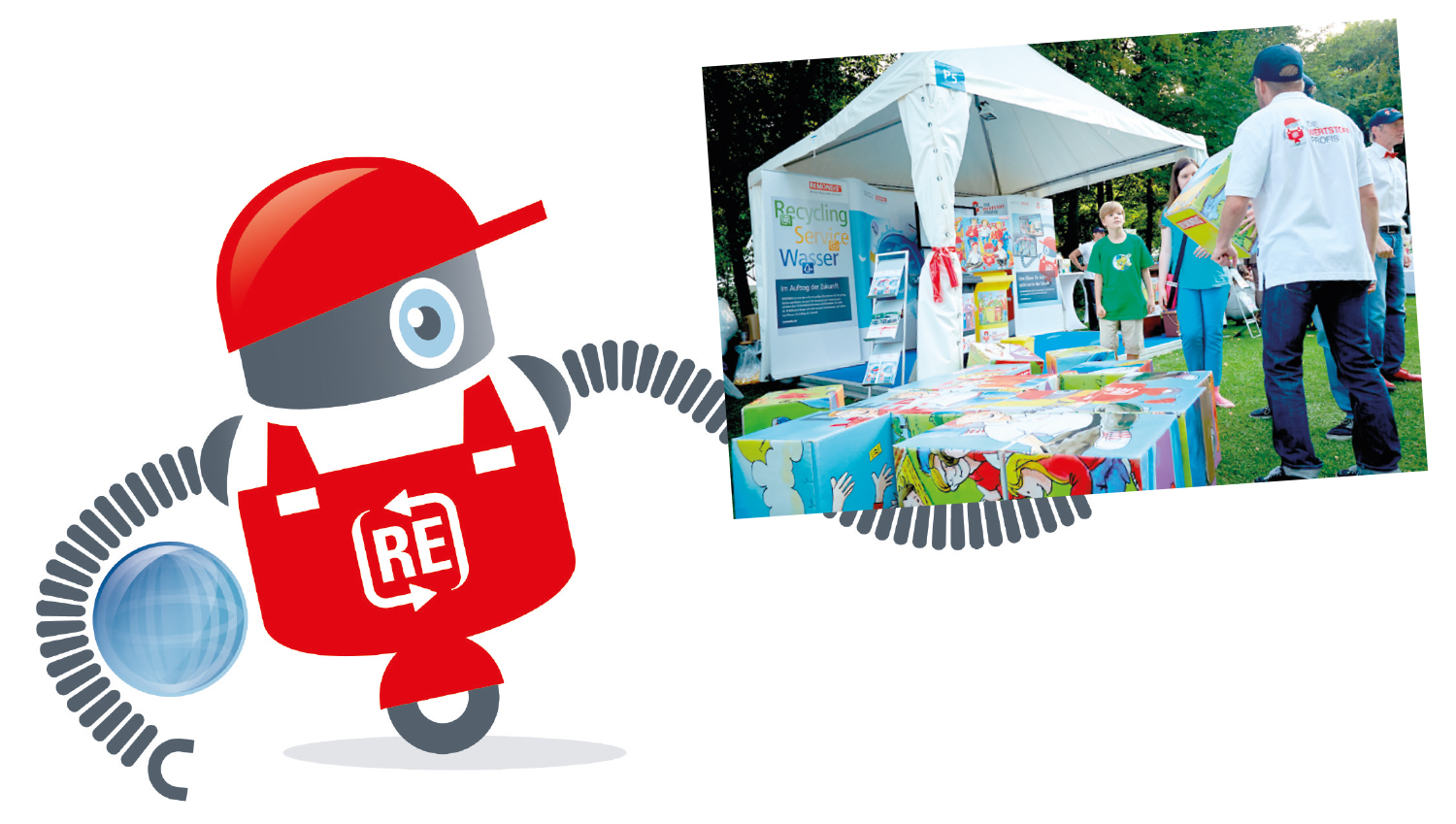
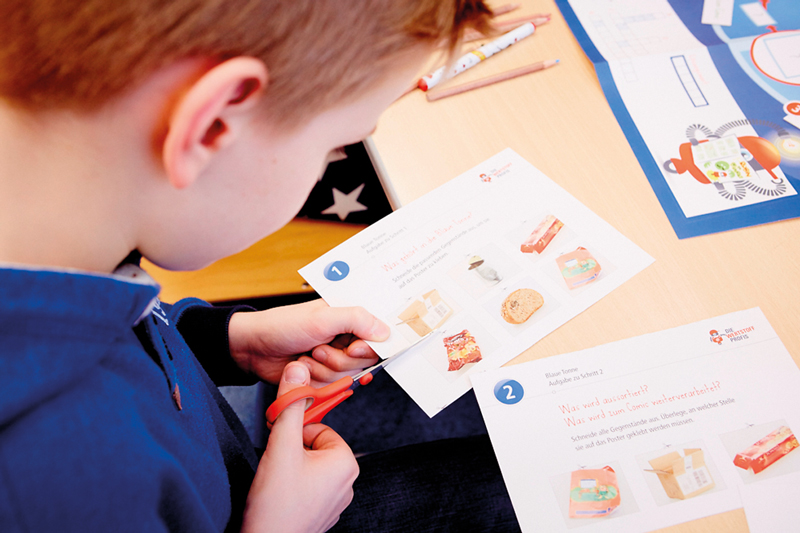
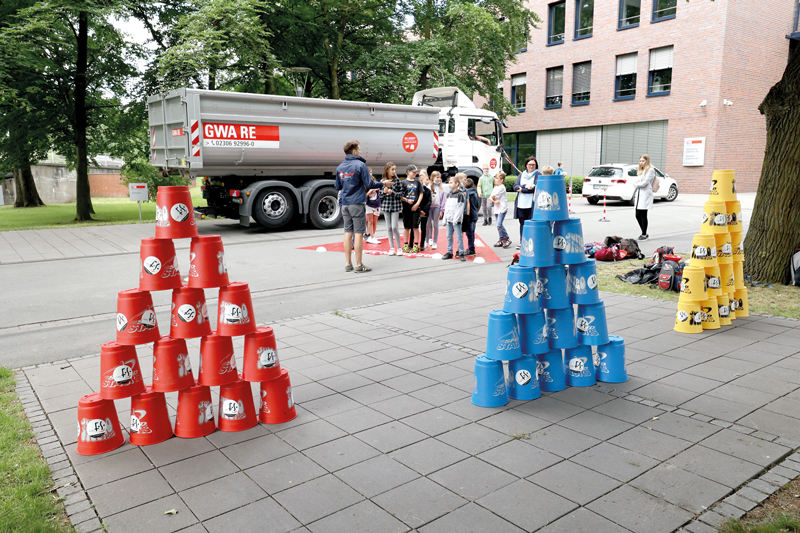
Sustainable environmental education for everyone
The RECYCLING PROFESSIONALS’ offering can be used by everyone across Germany. Kindergartens, schools and local authorities can simply register and book the modules they need for their day care centre, class or town festival. REMONDIS currently sponsors a large number of educational theatre performances every year. There is a huge demand for these events and far more appointments could be handed out were it possible to cover them all.
Other companies can also support these educational theatre performances for kindergartens and schools. This would certainly make the children very happy. Their feedback: “Both RECYCLING PROFESSIONALS are super kind and spoke like the mouse on TV. Robin, the robot, made us laugh throughout the show. The games were great and we enjoyed watching the films. The best bit was the singing at the end. Please come again soon!” The children aren’t the only ones who would like to see them come back.
REMONDIS would also like to see recycling, climate action and sustainability being taken even more seriously and being integrated even more into the lives of both children and adults. Whether it be in a playful way as with the RECYCLING PROFESSIONALS, instructive as on Instagram or entertaining as on the ‘Bürgerservice’ website. It’s high time that sustainable environmental education is available for all age groups and on all channels!
Image credits: image 1, 2, 8: Adobe Stock: Christin Lola; image 2: Adobe Stock: Marcos; image 3: Adobe Stock: Tom Wang; images 4 – 7: © REMONDIS


